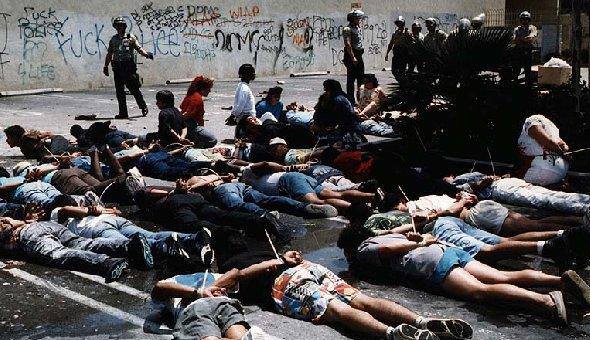In April 29, 1992, riots began in the southern part of the center of Los Angeles, which lasted a week and took 53 human lives. Hundreds of people were injured, 5500 buildings were burnt, 1 billion dollars in damage was caused, dozens of citizens were detained and convicted. The court decision caused disturbances to acquit 4 white police officers who brutally beat an African-American by the name Rodney King. In March 3, 1991, Rodney King, who before and after had problems with the law, has displayed a slight resistance to the police officer stopping his car and was exposed to electroshock and baton beating by the police officer which lasted a few minutes. The incident was video-recorded, the majority of the public believed that the police actions were not proportionate, but the court composed of white jurymen was of another opinion.
After the verdict, the African-American residents’ complaint turned into as reported in the newspapers “a week of horror.” The disturbances were managed to prevent only in the presence of National Guard and the Army. After that, there was a new trial, which found 3 of 4 police officers guilty.
I recall all of this for 3 reasons:
1/ The limit that separates the civilized man from the enraged beast is very delicate, even in modern times and even in developed countries like the United States.
Read also
2/ Human national, racial, tribal and religious differences, whatever is officially told by state and supranational level, may become a cause of acute controversies.
3/ The apparent disregard of law enforcers and justice against the public opinion everywhere, in democratic and non-democratic, rich and poor countries, contains a risk of serious explosion in itself.
Moreover, this extremely undesirable explosion can occur even with ancient and wise nations.
Aram ABRAHAMYAN






















































